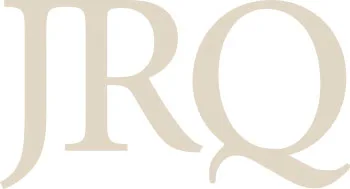Is Middle Australia Ready for Gay Marriage?
If Australians vote Yes for gay marriage in the postal survey that began this week, the bill will be debated in Parliament.
The survey is more than a measure of Australia’s social mores. It is a political and legal minefield, pitting “rainbow activists’’ against religious groups and rupturing the conservative side of politics.
The Australian Bureau of Statistics survey is a voluntary and non-binding alternative to the Turnbull government’s promised referendum, which was blocked in the Senate last year.
The $122 million opinion poll has whipped up a furious debate over discrimination, free speech and religious freedom.
It has provoked public discussion of sex, religion and politics — the very three topics considered taboo for polite conversation.
Gay rights activist Benjamin Law set the tone this week by tweeting: “Sometimes find myself wondering if I’d hate-f. k all the anti-gay MPs in Parliament if it meant they got the homophobia out of their system.’’
Kevin Rudd, the former Labor prime minister, then tweeted a photo of his godson Sean Foster, bleeding from a gash on his forehead.
The 19-year-old musician told police he was bashed for confronting a man taking down rainbow flags in Brisbane.
The vitriol and violence forced federal Parliament to pass temporary emergency legislation this week. Anyone who vilifies, intimidates or threatens to harm other people based on their religion conviction, sexual orientation or gender identity during the seven-week survey period will risk a $12,600 fine.
Conservative Liberal senator Eric Abetz, who opposes same-sex marriage, says “bullying’’ from the Yes camp is a harbinger of how the LGBTI lobby will campaign against religious groups once same-sex marriage is legalised.
“The vitriol has very much been one-way traffic — we’re not the ones calling people names like ‘homophobe’ and ‘bigot’,’’ he says. “People should be free to say if they’re voting Yes or No.’’
“I understand there are people who will be minded to vote Yes, but who are rightly concerned about freedom of speech and freedom of religion and parental rights.
“If a child has the benefit of both parents, and have a male and female role model, that will be better,’’ he adds.
“But if the law is changed, would we still be allowed to say we believe marriage should be between a man and a woman?
“People are telling me that would be seen as vilification and falling foul of anti-discrimination laws.’’
The No camp fears precedents set overseas. In 2012, a gay couple took legal action against a Christian baker in Colorado who said he would not make cakes for same-sex weddings, based on his beliefs. Five years later, the case is headed for a US Supreme Court hearing. The Trump administration is backing the baker.
After Ireland legalised same-sex marriage in 2015, an evangelical Christian baker in Belfast was fined for discrimination on the grounds of sexual orientation, after he refused to decorate a cake with the slogan, Support gay marriage.
In Washington, a florist is being prosecuted and sued for discrimination after refusing to prepare flowers for the wedding of a gay customer, on the grounds of her Christian beliefs.
Entsch’s bill sets out protections for religious freedom, by stating that ministers of religion can refuse to solemnise a same-sex marriage if the religion only allows heterosexual couples to marry.
Civil celebrants who register as “religious marriage celebrants’’ may also refuse to marry gay couples.
The loophole extends to businesses owned by religious groups, such as schools, halls or catering facilities.
In line with existing anti-discrimination law, any refusal must conform to the “doctrines, tenets or beliefs’’ of the religion and be necessary to “avoid injury to the susceptibilities of adherents to that religion’’.
It stops short of shielding other businesses from an anti-discrimination claim if they refuse to serve same-sex couples on the grounds of a “conscientious objection’’.
Entsch — a married father-of-four who has worked as a crocodile farmer, mining fitter and turner and real estate salesman — insists that businesses should not be allowed to discriminate on any grounds.
“You can’t say, ‘I won’t bake a cake for a blackfella or a Jew’,’’ he says.
“If they did that today, they’d be done for discrimination. Anyway, the next big surge will be gay weddings — wedding planners and cake makers will be fighting to get that market.’’
The Yes side appears to be winning popular support. Tens of thousands of gay marriage supporters rallied in Sydney on Sunday. Cricket Australia, the Football Federation, the ARU and the NRL have all taken a public stand for marriage equality.
Hundreds of businesses have thrown their support behind the Yes campaign, including Kmart, Lendlease, Apple, Westpac, the Commonwealth Bank, Optus and Telstra.
Qantas chief executive Alan Joyce put his money where his mouth is, donating $1 million of his own cash to the Yes campaign.
Church groups are bearing the flag for the No campaign by backing the Coalition for Marriage, which insists that “changing the law on marriage affects everyone’’.
It claims a Yes vote to gay marriage would “give license to activists who will weaponise anti-discrimination laws’’ to target people who believe marriage should be the union of a man and a woman and the foundation for families.
Read More: The Daily Telegraph
By: Natasha Bita
Back to News


